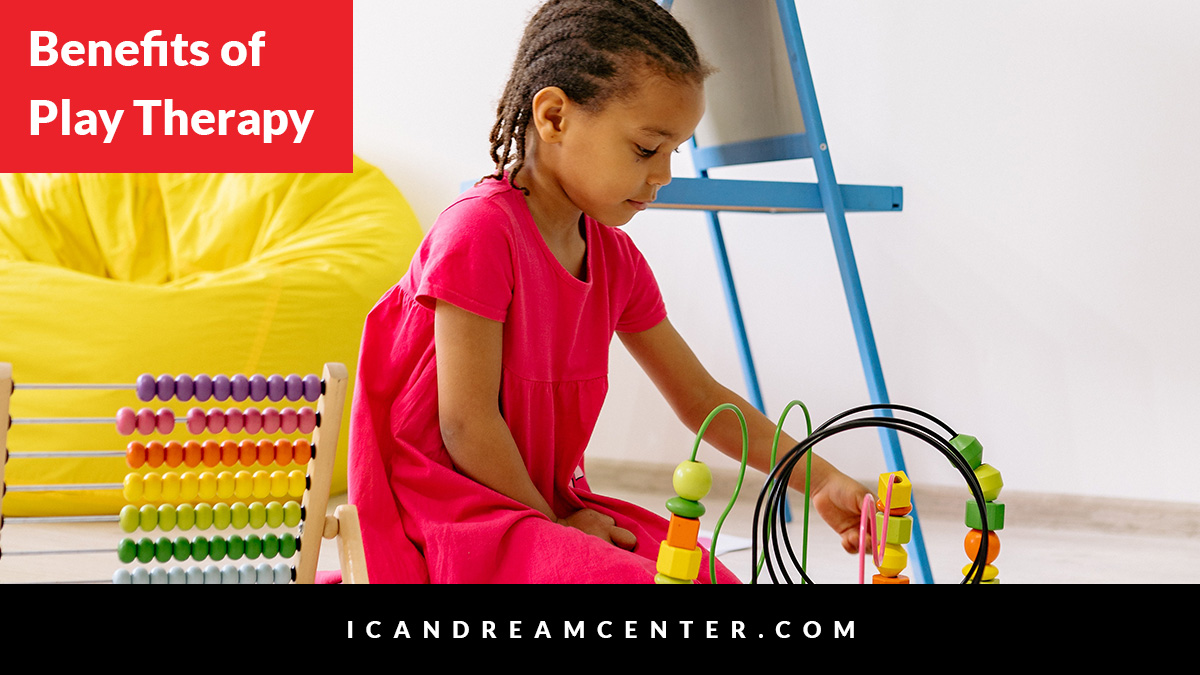
Benefits of Play Therapy
In our early childhood center, we have children who range in age from 3-7 years old. To have meaningful sessions with children, play therapy is an effective technique.
This is because play is a core component for child development. According to Lynne Kenney and Rebecca Comizio, play is crucial to the child’s cognitive development, motor skills development, as well as development of learning skills.
In the book 2, 4, 6, 8 This Is How We Regulate, play is defined as the child’s habitual language that encourages well-being within the child (Turner-Bumberry, 2019). For example, imagine a child going to a bland therapy office, confused as to why she must be there, compared to a bright colorful therapy office filled with toys. Which environment do you think would foster connection and a sense of agency?
Play therapy approaches are on a spectrum between non-directive/non-structured and directive/structured.
Non-directive play therapy believes that the child possesses the ability to determine the trajectory of the course, whereas the directive play approach is more of a planned approach by the therapist (Turner-Bumberry, 2019).
Play therapy requires an individualized approach taking trauma and circumstances into account on a child-by-
child basis (Turner-Bumberry, 2019).
Turner-Bumberry, T. (2019). 2, 4, 6, 8 This Is How We Regulate. PESI Publishing & Media.
Kenney, Lynne & Comizio, R. (2016). 70 Play Activities: For Better Thinking, Self-Regulation, Learning & Behavior. PESI Publishing & Media.
